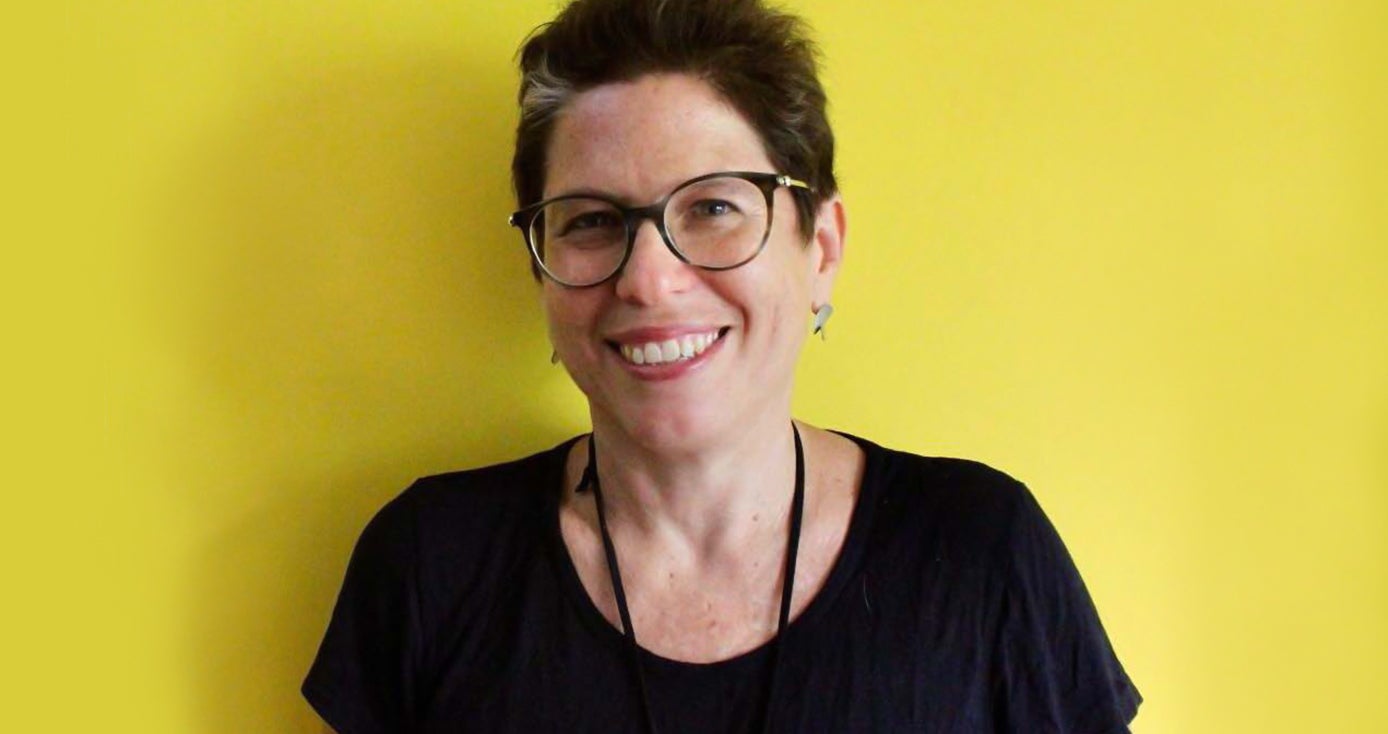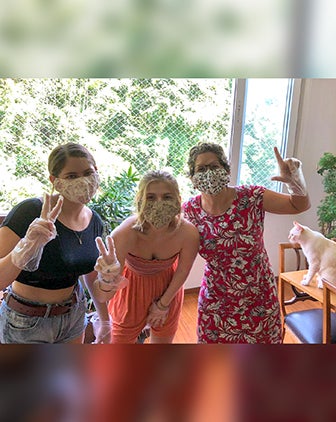
Subscribe to Pittwire Today
Get the most interesting and important stories from the University of Pittsburgh.From Rio to Pittsburgh: Keila Grinberg to Head Center for Latin American Studies
There is a new face at the helm of Pitt’s Center for Latin American Studies (CLAS). She is Keila Grinberg, a professor of history and an expert on enslavement and race in Brazil and other Atlantic regions.
She assumed her directorship in January, but due to border closures forced by the pandemic, she is working from her Rio de Janeiro apartment—attending Zoom meetings, planning events and becoming acquainted with Pitt faculty and students. Grinberg also is a new professor in Pitt’s Department of History in the Kenneth P. Dietrich School of Arts and Sciences, which offers a wide range of introductory and more specialized courses on Latin America.
Ariel Armony, vice provost for global affairs and director of the University Center for International Studies, says he is thrilled to welcome Grinberg to Pitt.
“Dr. Grinberg‘s rich and deep expertise in this field, and her pioneering work on enslavement in Brazil and its legacies, will further elevate CLAS as an internationally renowned center,“ he said. “Her bold vision for CLAS will lead us to expand cutting-edge research, engaged scholarship and innovative partnerships in Latin America and the Caribbean.“
An economy built by the enslaved
Grinberg says understanding the history of enslavement in Brazil, which wasn’t abolished until 1888, is crucial to understanding Brazilian society. Of all of the enslaved Africans that were taken to the Americas, she says about 45% of them landed in Brazil, and 5% in the United States. “Those numbers help us understand how the experience of slavery and racism shapes Brazilian history and society nowadays,” she said.
For 300 years, enslaved people kept Brazil’s economy churning—from backbreaking work in sugar cane fields in the 16th century, to cotton, then mining gold and diamond deposits, and later harvesting coffee beans. Grinberg says to this day, Brazil still has remnants of its colonial past combined with modern enslavement—people still mining in a subhuman environment and immigrants working in very bad conditions.
“There is not a single place in the world that is rid of slave labor,” she said. Though she adds that in the first 15 years of the current century, Brazil was one of the countries in the forefront of fighting modern enslavement.
Documenting history
All of this history is the focus of Present Pasts: The Memory of Slavery in Brazil, a project founded by Grinberg and two colleagues in the early 2000s that she is bringing with her to Pitt.
Relying on oral histories they obtained from the descendants of the last generation of enslaved Africans in the state of Rio de Janeiro, the researchers developed a huge and still-expanding database of sites—churches, beaches, cemeteries and quilombos, or hinterland settlements created by fugitive slaves.
There also is a Present Pasts smartphone app, through which one can hear interviews and music sung by the interviewees. By actually going to a quilombo, for example, one scans a QR code and can hear even more interviews and additional images. Many K-12 teachers are using it as a teaching tool. Grinberg’s own daughters, ages 16 and 19, used it on a school field trip.
It is also a boost for the three communities involved—the Quilombo of Bracuí, the Quilombo of São José da Serra, and the town of Pinheiral. Local townspeople serve as guides and provide food and lodging for guests.
“Even more than that, it gives these people a sense of what is absolutely central to their importance as guardians of that memory,” said Grinberg. “It is not just a memory of enslavement, which is tragic, but a memory of survival—survival of their family and their culture, the Afro-Brazilian culture.”
A vision for the center
Grinberg says she looks forward to continuing the work already done by CLAS, which is one of the most well-known centers for Latin America in the United States. While it already has a strong connection to the humanities, Grinberg wants to develop new partnerships with areas close to her heart—public health, the environment, STEM areas and the biological sciences.
She applauds Pitt’s Latinx cluster-hiring initiative and says it will strengthen connections throughout Pittsburgh, the whole country and also Latin American countries. She acknowledges Pitt’s Latinx student body is growing and that it will include her oldest daughter Tatiana as a first-year student in fall 2021.
Pittsburgh’s overall Latinx community, growing in a slow but steady way, will never be far from her mind. She wants to shine a spotlight on Pitt’s renowned Eduardo Lozano Latin American Collection and possibly add to it a special collection of videos and oral histories on the memory of enslavement and on Afro-Brazilian cultural heritage. And while Pitt’s lively annual Latin American & Caribbean Festival has been postponed until October, a virtual preview event will still take place on April 9.
“The relationship with the community is how we create new knowledge and value,” she said. “The knowledge of communities that have been invisible in the past.”



